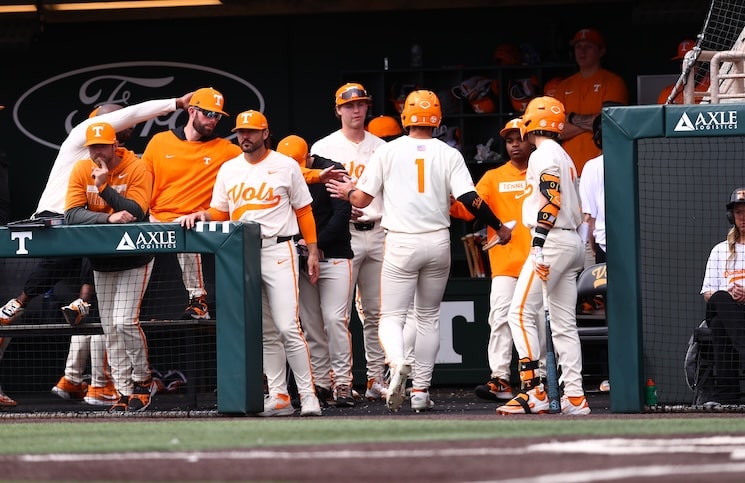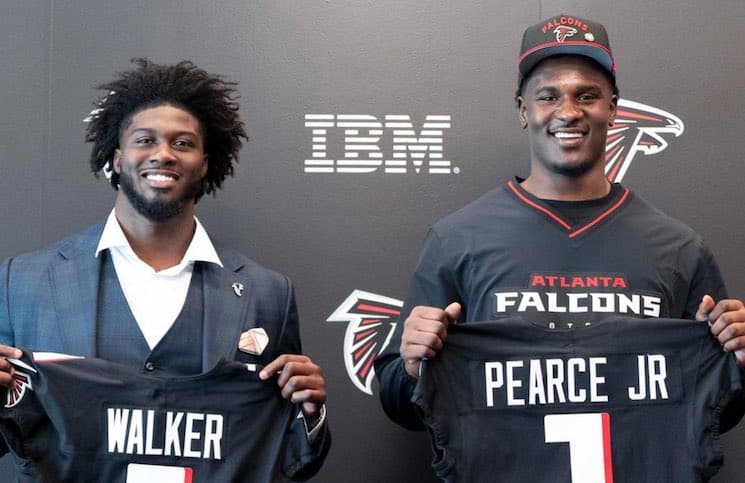 In case you missed it on Wednesday, Kyle Phillips, one of Tennessee’s spring enrollees, was bumped to five-star status by 247Sports after a strong senior season and a strong showing in the Army All-American Game.
In case you missed it on Wednesday, Kyle Phillips, one of Tennessee’s spring enrollees, was bumped to five-star status by 247Sports after a strong senior season and a strong showing in the Army All-American Game.
In a sense, it means nothing. The Vols have Phillips either way and he’s the same person whether he’s demoted to a two-star or promoted to a five-star. But in another sense, the influx of stars and Tennessee’s overall rise up the national recruiting rankings over the past two years means everything as well.
Butch Jones is changing the game in recruiting in Knoxville – or at least throwing it back to what Tennessee fans are more used to from the peak of the Fulmer era.
In Jalen Hurd, Josh Malone, Alvin Kamara, Preston Williams, Kahlil McKenzie and now Phillips, Jones has now either signed or currently has a commitment from six players over the past two years that have been ranked as a five-star prospect by at least one major recruiting service (he has a seventh, Shy Tuttle, who was a five-star, but was demoted to a high four-star in 247Sports final round of rankings this year). Jones’ predecessor Derek Dooley signed just two in his three-year tenure in Knoxville. That collection of five-stars, in addition to numerous four-star recruits, has led to UT’s classes finding their way back close to the top-5 in recruiting nationally again.
The 247Sports Composite ranking, an average of the top classes across multiple recruiting rankings, put Tennessee’s 2014 class at No. 7 nationally. The 2015 class currently sits at No. 4. What do those type of numbers really mean in terms of predicting success? Time for some math.
I went back and averaged the composite recruiting class ranking of the last six national champions from the four years prior to them winning their title.
Those six champions – Florida State, Alabama (x3), Auburn and Florida – had a cumulative average recruiting class rank of No. 6.6 in the nation during the time period studied. All, except Auburn, had an average of between 2.25 and 8.25 for that four-year span. Auburn, at 15.75, classifies as somewhat of an outlier because of 1. Having Cam Newton to cover up other roster flaws and 2. Going through a coaching change during the pre-national title period. Still, Auburn had two top-10 classes in the four years before winning it in the 2010 season.
I did this study a few years back and found pretty consistent results all the way back to the early 2000s. Data shows us over and over again that averaging a top-10-to-15 recruiting class for four years is a necessity to win a title in this era of college football, and regularly finishing in about the top seven or eight is the best way to set yourself up with a chance. According to our friend Dave Bartoo at CFBMatrix.com, Georgia is the only team that’s averaged a top-8 recruiting class this century to not at least play for a national title.
Of course every season there are numerous teams that fit the profile that not only don’t win the national title, but also don’t even come close. Even in the lean Dooley years, the Vols still had a roster that averaged top 15-25 talent and didn’t do anything with it. There are so many more factors involved – development, coaching, health, schedule, attrition and more than UT has come up on the short side of.
But I can say this with confidence: While having top-ranked talent doesn’t assure anything, a team can’t be serious about winning it all without it.
And make no mistake, Tennessee is heading in that direction. Even if Butch Jones’ next couple of classes take a step back – say to No. 10 nationally – the Vols will be creeping higher into that contention zone over the course of the next couple of years.
None of this is to say that Jones will win a national title at Tennessee. Too many variables go into that.
But there is proof that he’s eliminating the recent barriers to what has kept Tennessee from doing just that since 1998.




